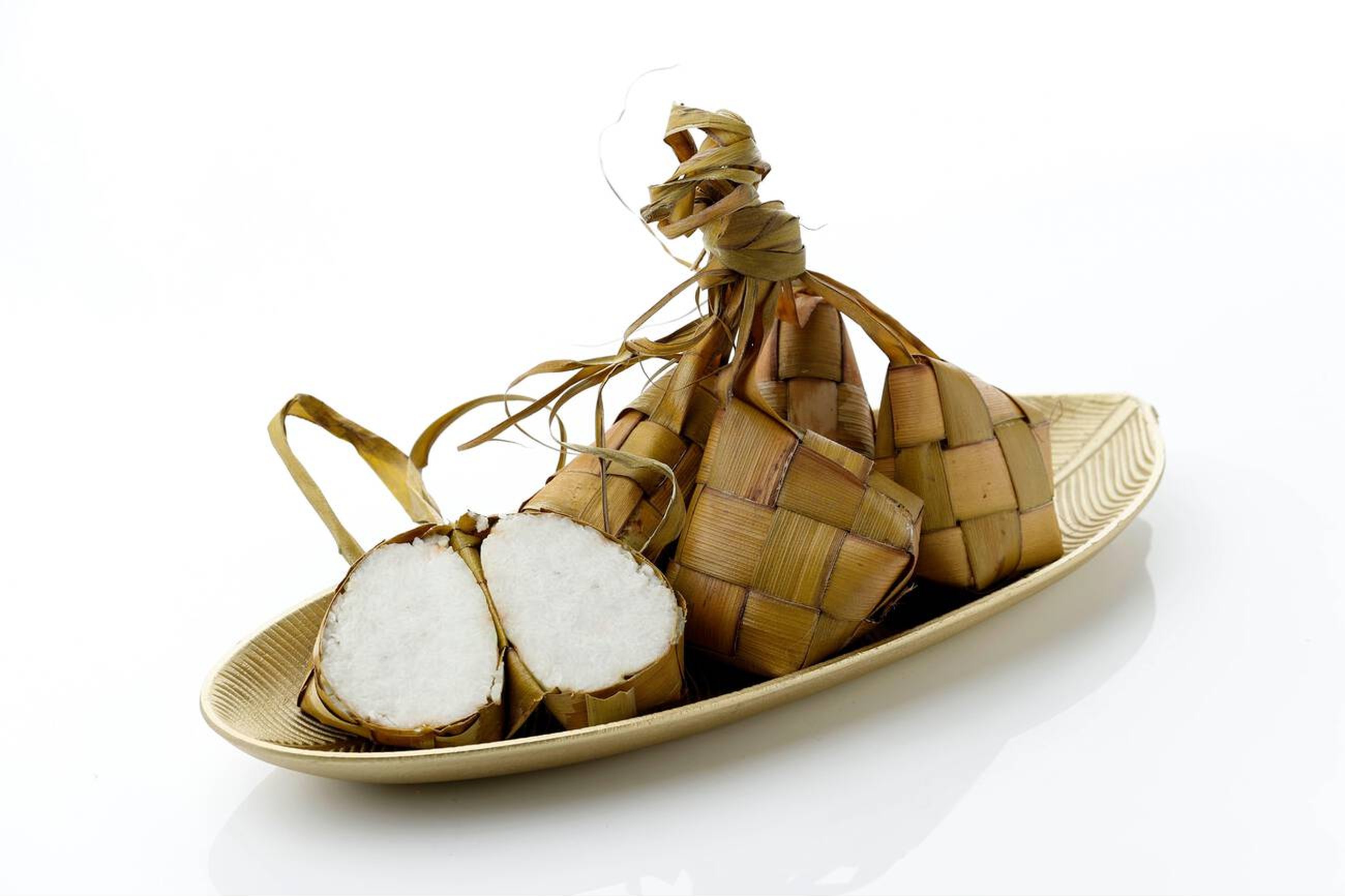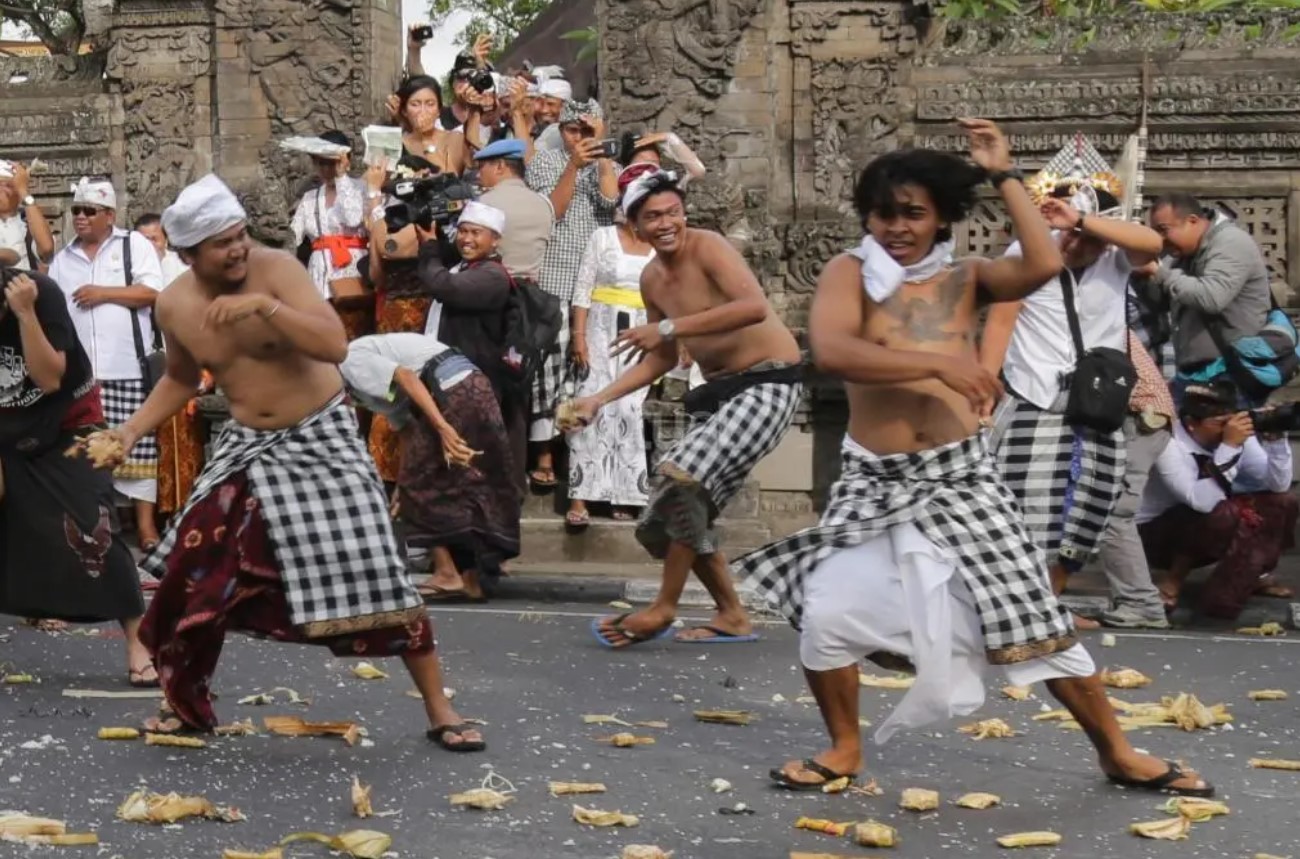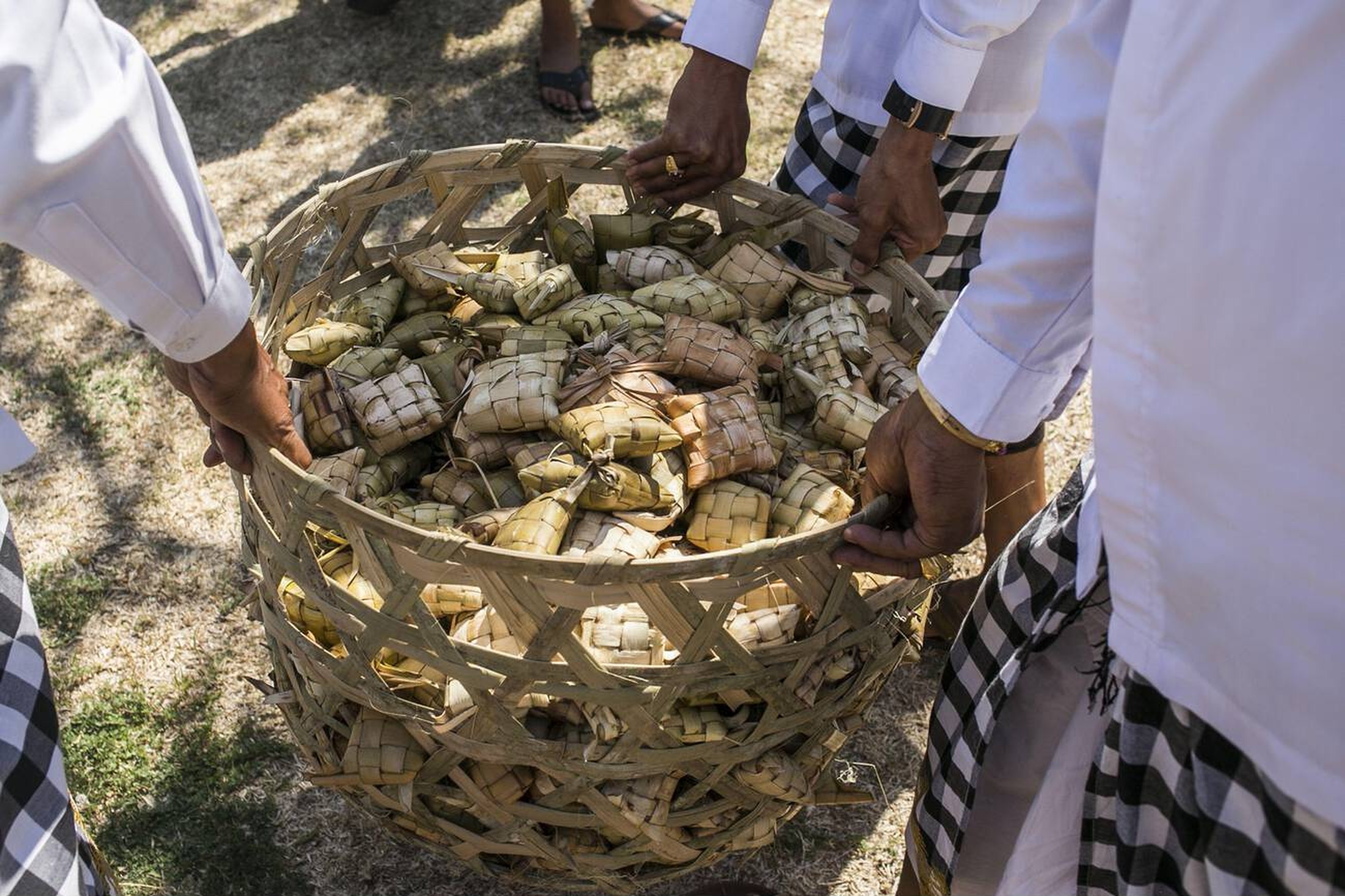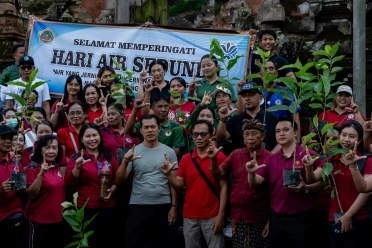Bali is rich with traditions that never cease to fascinate, and each region holds rituals and beliefs that vary from one another. Among the many cultural events that you can explore, the Tipat Bantal War in Badung is a unique and exciting tradition that takes place once a year, typically between September and October, during the fourth month of the Balinese calendar. Unlike any typical war, this one turns into a lively, playful battle where participants hurl rice cakes at each other on a grand scale! Read below to find out more..
A Battle of Delish Tradition: The Vibrant ‘Tipat Bantal War’ of Kapal Village
Origin: An Expression of Gratitude
In the heart of Desa Kapal, located in Badung, Bali, lies a fascinating and unique tradition known as Aci Rah Pengangon or more popularly, the Perang Tipat-Bantal—a symbolic event celebrated every fourth month of the Balinese calendar (sasih kapat), typically around September to October.

The tradition also has its roots in ancient history. One of the most notable mentions comes from the Lontar Tabuh Rah Pengangon, a historical manuscript owned by Ketut Sudarsana, a resident of Desa Kapal. It narrates the story of Asta Sura Ratna Bhumi Banten, who became the ruler of Bali in 1337 AD. He appointed Ki Kebo Iwa, a well-known figure in Balinese history, as his regent and tasked him with restoring the Candi at Khayangan Purusada in Desa Kapal.
During this time, Desa Kapal faced a severe famine, causing turmoil among its residents. Ki Kebo Iwa, troubled by the situation, sought divine guidance through meditation at Khayangan Bhatara Purusada. In his meditation, he received a revelation from Sang Hyang Siwa Pasupati, instructing him to perform the Aci Rah Pengangon or Aci Rare Angon using Tipat and Bantal as symbols of Purusha and Predhana. This ritual was believed to restore the balance of life forces and bring an end to the famine.
Masculine-Feminime Symbolism

The Tipat, a square-shaped rice cake wrapped in young coconut leaves, and the Bantal, a cylindrical snack made from glutinous rice, are the key elements of this event. These two foods symbolize the masculine and feminine energies in Hindu philosophy, known as Purusha and Predhana. The villagers believe that this symbolic balance of energies ensures the sustenance and growth of all living things.
Interestingly, while many Muslim communities sell ketupat before Eid, the villagers of Kapal are forbidden from selling Tipat. In this context, Tipat symbolizes feminine energy and is revered as the physical manifestation of Ibu Pertiwi or Mother Earth, who sustains all life. The land, as a source of life and growth, must be preserved, nurtured, and respected—a principle deeply rooted in local wisdom.
'Kapal's Rice Cake Party!'
The Tipat Bantal War is held in front of the village temple, Pura Puru Sada, in Kapal Village. The ritual begins with a prayer session at the temple, where participants seek blessings for safety and success. Afterward, the men of the village prepare for the war, dividing themselves into two opposing groups. This act represents the idea that food is the most vital weapon for survival, reminiscent of Spain's famous tomato fight, but with a distinctly Balinese twist.

As the war commences, participants stand facing each other, armed with Tipat and Bantal, and the battle begins. With shouts of excitement, they hurl these symbolic "weapons" at each other, creating a chaotic yet joyous scene. Spectators are not spared either, as the flying Tipat and Bantal often land on them, adding to the fun and lively atmosphere. Despite the intensity, this tradition is carried out with joy and without any hostility, as it is a celebration of communal harmony and fertility.
The Embodiment of Principle
The Tipat Bantal War is more than just an exciting food fight; it is a deeply symbolic ritual that embodies the principles of Balinese Hinduism. By throwing Tipat and Bantal, the villagers reenact the meeting of masculine and feminine energies, which is believed to ensure the fertility of the land and the well-being of the community. The remnants of the Tipat and Bantal are later gathered and buried in the rice fields, symbolizing prosperity and the hope for a fruitful harvest in the coming year.

If you're planning a trip to Bali around September or October, make sure to check the calendar for the Tipat Bantal War in Kapal Village. This thrilling event is not only a testament to Bali's rich cultural heritage but also a celebration of community, harmony, and the island's agricultural roots. Whether you're a culture enthusiast or simply looking for a unique experience, the Tipat Bantal War offers a glimpse into the heart of Balinese tradition.




 Billy Bagus
Billy Bagus
 Aug 23, 2024
Aug 23, 2024






